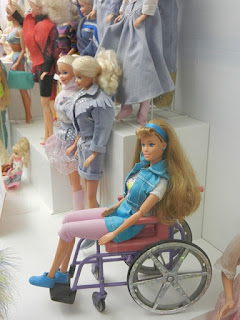There's this myth that having a mental illness somehow makes you a better writer.
The tortured artist, able to bring forth the most beautiful art from their pain.
That myth is complete b*lls**t.
If anyone with a mental health problem is creating beautiful art or writing, it is in spite of not because of their illness.
For the love of whatever higher force you believe in, do not demean the efforts of artists and writers by saying that it's 'only' because they have mental health problems that they can do these things.
Because it's damned hard.
It can be hard enough to do the day-to-day things with mental health problems. Writing? Can be a constant f**king marathon.
Like a lot of people, I've always wanted to write.
Maybe 'wanted' is the wrong word - I've always written, because it's just a part of who I am. Call it a character trait if you like.
Now, I'm sure a fair amount of you will be familiar with the insecurities and worries of being a writer.
There's something about writing that is intensely personal, and you're putting it on display. Who wouldn't be worried?
When you have depression and anxiety though, all those insecurities are magnified.
There are challenges to writing, to wanting to be 'a writer' when you have these conditions.
There are challenges to writing, to wanting to be 'a writer' when you have these conditions.
Here are a few them:
(This is just my own experiences and opinions guys. Everyone experiences mental health problems differently. Also, self-care guys - if you have to stop reading for your own mental health, you freaking do it!)
I'm sure most people have thought this at some point when looking back at their own writing. I think it almost every time I read something I've written.
Worse, sometimes this can lead to a thought spiral: this isn't good enough and it's what I've always wanted to do, I can't do anything right, why do I bother...?
Sometimes it gets darker than that, but I don't want to bring you all down.
2. What if...?
When you have anxiety problems, 'what if...?' is a dangerous trap to fall down. It can keep you stagnant just because you're too terrified of either success or failure.
Yes, I have anxiety issues around success, as well as failure.
- If people actually like what I write, what if I can't replicate that a second time?
- What if I have to go to events and lit festivals? That would mean travelling, meeting new people, speaking about my own writing, ending up in the right place at the right time... all things that give me massive anxiety issues.
- What if people don't think I'm worthy of the success?
Imagine these sorts of thoughts, spinning through your head faster and faster, as your breath gets shallow and you shake and start to feel dizzy. Anxiety is a b**ch.
3. Writing affects your mood.
I'm pretty good at listening to the warning signs when I'm reading something that is going to send my mood off-kilter.
...It isn't always what you think either - sometimes I can't read happy things because I think I'll never have that, and that has a bad effect.
...It isn't always what you think either - sometimes I can't read happy things because I think I'll never have that, and that has a bad effect.
But with reading, like I said, I've gotten pretty good at matching to my mood. It's part of the reason I read so many different books at once - I can match the book to what I'm feeling.
Writing? Writing is something I get lost in... and I don't always notice when it's affecting my mood.
4. My motivation goes to sh**.
I nearly gave up on this post numerous times. If you're reading it, it means I somehow managed to a) finish it, and b) convince myself to actually publish it.
I will start writing something and just... give up.
I won't be able to convince myself to finish it. Why would I? It's never going to be decent enough for people to read anyway... See? That's the sort of sh** my brain throws at me.
And sometimes I'm just too damned tired.
4. My motivation goes to sh**.
I nearly gave up on this post numerous times. If you're reading it, it means I somehow managed to a) finish it, and b) convince myself to actually publish it.
I will start writing something and just... give up.
I won't be able to convince myself to finish it. Why would I? It's never going to be decent enough for people to read anyway... See? That's the sort of sh** my brain throws at me.
And sometimes I'm just too damned tired.
5. I can't concentrate.
Sometimes I actually feel like I just can't think.
Depression makes your thoughts fuzzy and makes concentration difficult. So I will start writing something, and then just... not know what I was doing with it.
Or I'll not be able to get out what I'm thinking onto the page or screen because it just... gets lost somewhere.
Or I'll not be able to get out what I'm thinking onto the page or screen because it just... gets lost somewhere.
So yes, writing is something I've always wanted to do. No, I'm not going to give up... but my writing doesn't come from my illness.
My illness has tried to kill my writing - has tried to kill me - on more than one occasion. Please bear that in mind.
Like this post? Try these:
- #DisabilityDiaries2017 | Review! - Unspeakable by Abbie Rushton
- #DisabilityDiaries2017 | Nerd Church - No Shame, No Stigma
- #DisabilityDiaries2017 | Harry Potter and the Representation of Scarring
- Nerd Church - Mental is Physical



















